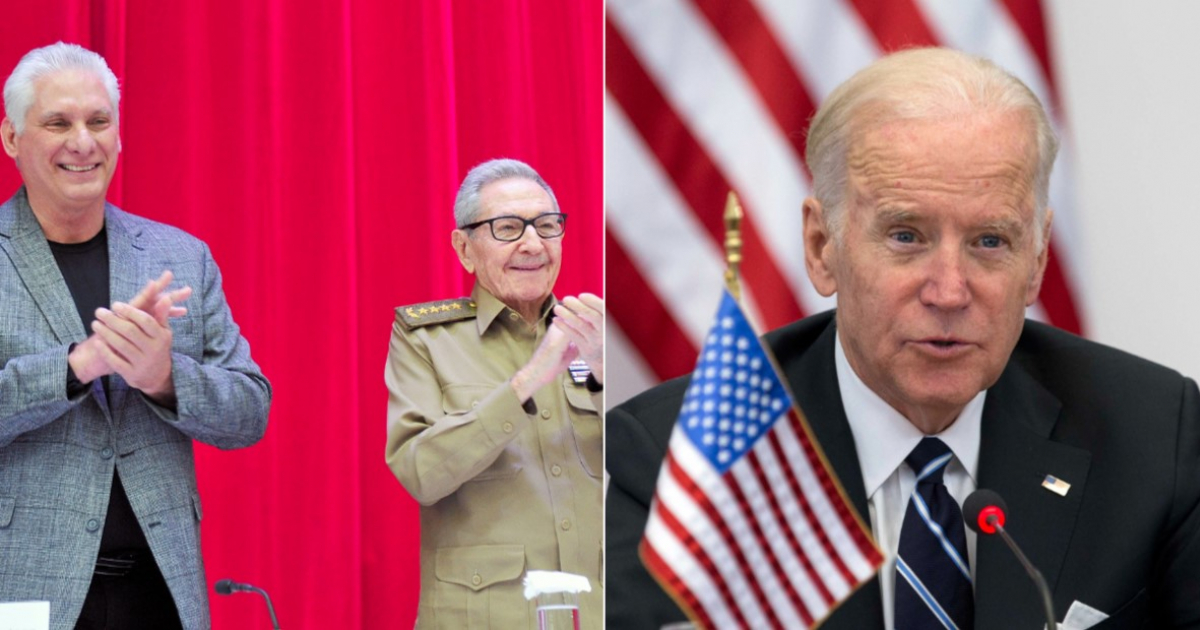
Related videos:
When just a step away from leaving the White House, the administration of Joe Biden may lift Cuba's designation as a state sponsor of terrorism, according to U.S. officials familiar with the matter.
These officials, who requested anonymity because they are not authorized to comment publicly, told the news agency AP that the matter is being discussed but has not yet been officially announced.
According to the news outlet, a decision to overturn this designation is expected to be made next week, coinciding with the inauguration of the elected president Donald Trump and the arrival of Marco Rubio as Secretary of State.
Rubio, who comes from a family that fled Cuba in the 1950s before the Communist Revolution that brought Fidel Castro to power, has been a strong advocate for sanctions against the island, and many say he could tighten them during his tenure at the helm of that department.
It has been announced that Rubio will address his Cuban roots during his confirmation hearing before the Senate Foreign Relations Committee, scheduled for this Wednesday.
Cuba's designation as a state sponsor of terrorism was reinstated in the final days of Trump's first administration, on January 11, 2021.
This measure nullified the reversal made during the period of rapprochement between Cuba and the United States under the presidency of Barack Obama and has remained in place until now.
The Trump administration justified the reinstatement of the designation by citing Cuba's support for Nicolás Maduro's regime in Venezuela, its refusal to extradite Colombian rebels to Colombia, and other issues, such as harboring Americans wanted by justice.
Moreover, over the last four years, Biden and his officials have stated that there would be no changes regarding Cuba's inclusion on the list of state sponsors of terrorism, despite the claims from the Havana regime.
On December 11, Secretary of State Antony Blinken stated that he did not anticipate any changes in the policy toward Cuba before Biden left office.
However, if the departure of the island from the list were to materialize—which has been a constant request from the Cuban authorities—the Democrats would conclude this administration just like that of Barack Obama, who three days before leaving the White House eliminated the "Wet Foot, Dry Foot" policy.
Frequently Asked Questions about the Possible Removal of Cuba as a State Sponsor of Terrorism
Why does the United States consider removing Cuba from the list of state sponsors of terrorism?
The possible removal of Cuba from the list of state sponsors of terrorism is being discussed within the Biden administration, although it has not yet been officially announced. This change is considered in the context of Donald Trump's inauguration and the arrival of Marco Rubio as Secretary of State, both of whom could influence this decision. However, during his term, Biden has kept Cuba on the list, citing reasons such as support for authoritarian regimes and the refusal to extradite rebels to Colombia.
What are the consequences for Cuba of being on the list of state sponsors of terrorism?
Cuba's inclusion on this list imposes severe economic sanctions that hinder its access to international financing, restrict arms exports, and limit dual-use goods. These sanctions exacerbate the island's economic difficulties and complicate efforts to improve bilateral relations with the United States.
What is Marco Rubio's stance on Cuba as a sponsor of terrorism?
Marco Rubio has been a staunch advocate for maintaining sanctions against Cuba and believes that the Cuban regime is a threat to the national security of the U.S. Rubio has called for regime change in Cuba and has criticized any attempts at appeasement towards the Cuban regime, arguing that such actions only strengthen the authoritarian government of the island.
What impact could Marco Rubio's appointment as Secretary of State have on Cuba policy?
The arrival of Marco Rubio as Secretary of State could harden U.S. policy toward Cuba. Rubio, a critic of the Cuban regime, could implement stricter sanctions and increase funding to opposition groups. This would impact the Cuban economy and bilateral relations, escalating pressure on Cuba and its allies.
Filed under: